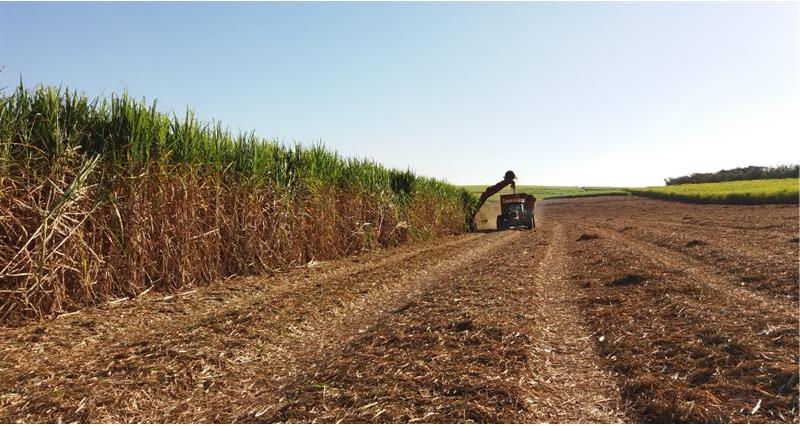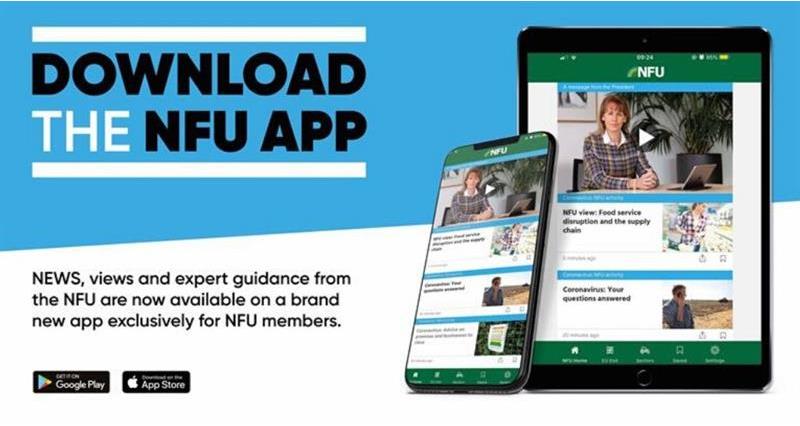The Department for International Trade (DIT) has opened a consultation on the new raw sugar Autonomous Tariff Quota (ATQ).
A tariff free quota open to all countries will provide additional access to the UK market for raw sugar grown anywhere in the world, often produced following farming practices that would be considered illegal here. Raw sugar is from sugar cane that would be refined by Tate and Lyle. NFU Sugar believes the opening of a zero tariff ATQ for raw sugar will distort competition in the sugar market and undermine the preferential access granted to developing countries.
Click here to see how to respond to the consultation
This is your opportunity to make your voice heard to safeguard the homegrown sugar industry. The DIT consultation is open until 11.45pm on Monday 5 October.
Click here to read the NFU Sugar position on the raw sugar ATQ.

NFU Sugar board chairman Michael Sly (pictured above) said:
“The government’s consultation on the introduction of a tariff free quota on raw sugar is a unique opportunity for the UK’s 3,000 growers to make their voice heard on a policy that will directly impact their business.
“NFU Sugar believes that the introduction of this tariff-free quota would impact thousands of beet-growing businesses and undermine the UK’s production standards, by allowing tariff-free access to sugar from any country in the world that may well be produced in ways that would be illegal in the UK.
“I would urge all growers to respond to this consultation and ensure the government understands the great concern the home-grown sugar industry has about this proposal.”
How can I respond to the consultation?
Act now to make sure your voice is heard. Make sure you tell DIT the impact this new tariff will have on your business.
Please respond directly to the government consultation. See below for suggestions on how to respond.
Respond to DIT
We also ask you to contact your MP to reinforce the importance of the homegrown sugar industry.
Email your MP
What should I include in my response?
You may wish to include the following points in your response.
♦ An ATQ should not be opened up because:
- There is no shortage of sugar available in the market from domestic producers and existing preferential partners (developing countries and through the UK’s FTAs).
- The ATQ exposes UK sugar growers to competition from sugar growers around the world that benefit from subsidies, distortions and access to production methods that would be illegal in the UK.
- Allowing tariff free access to all countries takes away any value from the preferential tariff free access arrangements granted to developing countries which the government has reaffirmed it wishes to support, such as in the remit of the Trade and Agriculture Commission.
- Unilateral tariff concessions reduce the UK’s negotiating capital in all future Free Trade Agreements where the UK has an offensive interest in securing export access.
♦ Government should always think carefully about granting concessions before offering them. In general, if the government were to offer concessions, granting these within FTAs is more appropriate than unilateral concessions such as the ATQ offered to all countries. This is because:
- The government can take account of the regulations and production methods used in the partner country and ensure the appropriate rules/safeguards are in place for any concession agreed.
- The government can take account of any subsidies and distortions that apply to the partner country’s industry, and ensure any tariff rate offered fully reflects the competition-distorting impacts of policies in the partner country.
- The government can negotiate access for UK products into the partner country’s market in return for concessions on trade into the UK.
- The government can assess the impact a concession in an FTA might have on trade with existing preferential partners, to avoid undermining the government’s own commitment to developing countries.
- The government can use FTAs to prioritise the government’s other policy aims by granting concessions to specific countries.
♦ If a quota is introduced, the sugar accessing it must be produced from cane (or beet) grown to the same regulatory standards as required through the regulatory system arable farmers in the UK operate under, including as relates to plant protection products. Sugar must be produced from cane (or beet) that has been bred according to a method legal in the UK. This is the sort of complex comparison we expect the Trade and Agriculture Commission to address.
♦ To complement this, if a quota is introduced, it should be managed in the following way:
- Via import licenses, which would be granted upon proof of the supply meeting the conditions. These also provide for greater market transparency.
- Divided into monthly tranches, to avoid the significant market disruption of the annual volume arriving in a short period of time. An ATQ opening in January will be introduced part way through the sugar marketing year which runs from October to September, adding further risk of disruption which can be mitigated by dividing the ATQ into monthly tranches.
- Entrust the duty of establishing and managing the ATQ to an independent body.
♦ The government must share the impact analysis demonstrating the need for this tariff suspension to be granted and the impact this will have on the homegrown sugar sector and on developing countries’ trade with the UK.
More from NFU Sugar:
- NFU Sugar position on new raw sugar Autonomous Tariff Quota
- Ground-breaking changes announced in 2021 sugar beet contract offer
- Futures-linked sugar beet contract guidance
- Futures-linked sugar beet contract FAQs
- Meet the NFU Sugar board
- The Beet Brief: Bringing the sugar market to you
- Market information - including beet price tracker

